|
One of the things I love about Catholicism is that we celebrate the mysteries of our faith in a physical way. Going to Mass, kneeling, standing, singing, receiving the Eucharist, hearing and proclaiming the Word of God, experiencing community after Mass or at parish events. Some of our liturgical feast days even emphasize the physical contact between us and the Divine. Think of reverencing the wood of the Cross on Good Friday or participating in a Eucharistic procession on Corpus Christi. Our faith is incarnational, and our bodies are important conduits for worship. That’s part of the reason the last several months have been so difficult for so many. These physical elements of worship have been—largely—unavailable to us because of COVID-19 and the practice of physical and social distancing. Most of us have also been physically disconnected from our communities of faith, friends, and family. We’ve missed important events like birthdays, retirement parties, and even funerals. The emotional, spiritual, and psychological effects of this separation are very real and very serious. And it’s been clear from the outset of this pandemic that the Church must take action to alleviate the impact of isolation, despair, and loneliness caused by this pandemic. But who will lead the charge? I find myself asking, what is the Church going to do about it? How will we get through this? And then I realize, the Spirit is calling me. And, friends, the Spirit is calling you too. We’re not being called to wait around while someone else figures it out. God is calling us to figure this out together. We must remember that we are the Church on earth, and we are being invited by the Spirit to cooperate with God’s grace to take action and serve others, right now. We can’t simply wait for someone else to help. Those of us who are baptized are called to be missionary disciples and, ultimately, saints. And this call comes with a personal responsibility to recognize that all our lives are interwoven as branches grafted onto the Vine, as various parts of one Body (1 Corinthians 12). We are connected to one another through our baptism into Christ. Paul says, “The body is not a single part, but many.” And because of this interconnectedness, when one part suffers, the whole body suffers. So, we’ve got to do something about that, because we’re called to be “doers”. We are all suffering in some way during this pandemic. It’s not even possible to downplay that. And we all feel one another’s burdens. We especially feel our personal stresses and anxieties, day in and day out. I believe one of the answers to this anxiety and suffering is the beautiful work of spiritual accompaniment. The call to spiritual accompaniment is incarnational and based on the love of Christ. Spiritual accompaniment urges us out of our own interior world and presses us to walk with our brother or sister in whatever situation they might find themselves. Pope Benedict XVI says that God’s love for humanity is so strong that “it turns God against himself, his love against his justice” (Deus Caritas Est, 10). How, then, can we demonstrate a reflection of this great, personal love to one another if we can’t be physically present to one another? I believe we must be creative and find ways to communicate our companionship to one another in meaningful ways. We can allow ourselves to be challenged by these questions while we reflect on this topic: Do I have the ability to be present to my suffering neighbor in any way today? Do I have the capacity to do charitable spiritual accompaniment during this pandemic? I believe one effective way to spiritually accompany others as we remain physically distant is to ask challenging questions of others and engage in honest conversation. Though this may seem simple, “faith sharing” is a powerful way to be witnesses of God’s presence, and we all need to be reminded of God’s presence these days. I think there are two simple, penetrating questions that can start fantastic spiritual conversations that open our eyes to the great works of God. They are:
The answers to both of these questions reveal our hearts, our spiritual yearnings, our joys, and our sorrows; the answers to both of these questions lead us to recognize God’s presence among us, either by contemplating where we’ve seen God or petitioning His aid through prayer. I want to challenge you to invite a friend or someone you’re close with to consider these questions and then to hear their answers. Perhaps you’ll be surprised at the way the Spirit guides the conversation. I believe that through this simple practice of spiritual accompaniment, we will grow closer with one another, though distance or politics or ideologies may keep us apart. Loving and holy conversation is one way to begin healing the wounds caused over these last several months, and it is one way to accompany one another on the road as we travel strange, new paths together. To learn more about spiritual accompaniment, please click here. For more resources to deepen your faith during COVID-19, please click here.
0 Comments
Amid a time of challenge and difficulty, joy makes appearances in many ways. Recently, several Catholic Apostolate Center staff members and collaborators deepened their baptismal call through Ordination to the Priesthood and Marriage. We also celebrated the Baptism of the child of one of our staff members. The child is named Vincent for St. Vincent Pallotti. In every case, these celebrations were delayed and greatly reduced in size due to the pandemic, but the joy of these days found in the hope of Christ was evident in every one of them. Fr. Alex Boucher, a staff member during the first years of the Center and a current collaborator, was ordained to the priesthood for the Diocese of Portland (Maine). Hally Moreno, Marketing Coordinator, celebrated her marriage to Benny Morales. Center Collaborator, Fr. Joseph Hubbard was ordained to the priesthood for the Archdiocese of Boston. Vincent Scott Pierno, son of Senior Consultant, Chris Pierno, and blog contributor, Krissy Pierno, was baptized. His godfather is Fr. Alex Boucher. At each of these events, Center team members participated in the liturgies as part of the accompaniment that is our hallmark and rooted in the charism of St. Vincent Pallotti. We had accompanied them in their discernment and joined in the celebration. They all live their lives as apostles of Christ and witness to others not only through their particular vocation in life, but also in their support of one another. Such spiritual friendship was part of the life of St. Vincent Pallotti and is an aspect of the Catholic Apostolate Center that is intrinsic to our apostolic work. We support one another in prayer and in our lives in Christ. Each will do this in a unique way, but we are all called to accompany one another in life and in faith. May the Charity of Christ urge us on!
I must admit – the isolation that comes with social distancing during the Covid-19 pandemic is hitting me with waves of cabin fever and missing friends and family terribly. I’m incredibly thankful I am able to “quarantine” with my husband and dog, while at the same time I mourn the social engagements of seeing family, friends, and co-workers in person. My husband and I recently got married in May, and we’ve become parishioners of our local church. With our marriage came a move for me, as we previously had a long-distance relationship. When I’ve moved in the past, I’ve typically sought friendships and activities through my local Catholic church; finding my church family is always my first step in getting accustomed to a new town. Social distancing and canceled or online events make forming those relationships and feeling connected more challenging. It’s hard enough without a pandemic to be the new person! Many moments throughout the day, I ask myself why I find it so difficult to be away from others. After prayer and reflection, I realized seclusion is hard because God created us for community. God gave Adam a partner and said it wasn’t good for man to be alone (cf Genesis 2:18). We need a support system - the Body of Christ. In Matthew 18:20, Jesus says, “For where two or three are gathered together in my name, there am I in the midst of them.” When we encounter others, we are assured God is with us. This is especially felt when we have a Bible study, small group, or other faith-sharing activities with our fellow Christians. Hebrews 10:24-25 says, “We must consider how to rouse one another to love and good works. We should not stay away from our assembly, as is the custom of some, but encourage one another, and this all the more as you see the day drawing near.” This passage served as a wake-up call to me. I think of how much more I can do to check in on friends, family, neighbors, and coworkers, and to find creative ways of showing love. I want to share a few ideas of some actions that have helped my family and me cope through the isolation that comes with this current pandemic. 1.Call 1-2 People Each Week or Write “Snail Mail” Letters. My mom started calling one to two friends a week from church to check in and see how they were doing. She told me how much she enjoyed catching up with her friends and it meant a lot to her friends as well. I have done the same, and it’s so refreshing to hear my friends’ voices and what they are up to. I’ve also been sending cards for birthdays and ‘thinking about you’ notes or texts as well. 2.Consider Participating in a Virtual Rosary Recitation with Others. Friends of my mom’s invited her to say a daily virtual rosary with them. Together from their individual homes, they pray the Holy Land rosary with Fr. Mitch Pacwa. My mom has shared with me how much she enjoys talking with her friends after the recitations about the holy sites where mysteries of the rosary took place. 3.Make Donations. Many people are still in need of toiletry and food items. Food banks and other charitable organizations are continuing to provide services. Consider calling a local charity to learn about their donation protocols as some are taking items by appointment and need some items more than others. 4.Try Daily Mass. In July I felt very far from God. It had been two months since having the Eucharist at my wedding. I spoke with a friend who encouraged me to try attending daily Mass since fewer people were attending in person compared to weekend Masses. After attending daily Mass, I felt more in communion with God and with my fellow Catholics. My husband and I continue to attend Mass in person on Fridays and now on Sundays. My church, like many, encourages mask-wearing and has employed other precautions, such as seating arrangements, for everyone’s safety. Recently, one of the Brothers of Hope at my church approached us to introduce himself as he hadn’t met many folks, especially young adults like him. By reaching out, this Brother made us feel more connected to our parish and to fellow Catholics. 5.Enjoy Nature or Take a Walk Around Your Neighborhood. My husband and I have been taking our dog for walks in the neighborhood. We see many of our neighbors having socially distanced dates from their driveways, which is encouraging. For a change of scenery, we went to our local botanical gardens and have planned nature trail walks. 6.Aid Elderly Neighbors or Family. Check-in on family members and neighbors who may be elderly or immunocompromised to see if they need help with errands so they don’t have to enter stores. Sometimes, they may just need a friendly voice to chat with on the phone. 7.Have Socially Distanced Friend/Family Dates. If you’re comfortable with the idea, you can still enjoy seeing friends and family in a limited number either at one another’s houses or at a restaurant. Separately, we’ve seen a couple who are close friends with us as well as my husband’s parents about once a month. We keep these interactions socially distanced, wear masks, and use plenty of hand sanitizer. For more ideas on growing spiritually during COVID-19, please click here. Shifts in routines have a way of forcing us to reevaluate the purpose of our lives. When shaken from complacency, we start to ask questions of greater value: how do I spend my time, and with whom? What brought me joy today? What’s the purpose of my life? Where do I find meaning? As we continue to press onward in the midst of this global pandemic, I find myself asking these questions again and again. After prayer and reflection, I’ve come to realize I’ve worn many “masks,” and it took wearing a physical one to reveal them to myself. Prior to COVID-19, my work, my independence, my family, my social life, my community, my outings—these things and others gave my life meaning. They were my security blankets that helped me feel secure and often distracted me from some of life’s greater questions. None of these things are bad in themselves. All are good and fundamentally human. But, where our humanity often fails is in how much importance we give these temporal things. Does our occupation or social status or friend count lull us into a false sense of security or complacency? Do they make us feel powerful, independent, successful? Do they, in and of themselves, give our lives meaning? When I felt stressed or bored or unhappy prior to COVID-19, I could get a change of scenery at a museum or coffee shop. I could go to a store and buy something small to make my house more beautiful. I could go on a date with my husband or spend time with a friend. Many of these things were taken for granted, but as they become harder to accomplish or require much more intentionality and legwork, I’ve had to become creative in self-care and honest about where I find meaning in my life. First of all, I’ve had to sit longer with my feelings and allow myself to deeply feel my emotions. At various points throughout the pandemic, I’ve felt sad, anxious, frustrated, or lonely. Recognizing these feelings as legitimate and naming them has enabled me to better process what I’m going through and revealed to me what’s most meaningful. Many distractions have quieted down and enabled me to reflect on my life and mission. Who am I when I am not bouncing around from one mom group to the next? Who am I when I cannot organize and host events or gatherings? Who am I when I can rarely go to a store or go to get groceries? I am many things: a wife, a mother, a daughter, a writer, a sister, a friend. But most importantly, I am a Christian—a beloved daughter of God. When so many good and beautiful things that I relied on for purpose are rendered skeletons, I’ve had to relearn to rest in this true identity. I’ve found that God is asking me to place the purpose and meaning of my life not in these temporal things, but in his hands alone. I am not worthy of his salvation because of my degrees, my writing, my work, my friends, my connections, or my home. I am worthy of his salvation because he made me. Because I am his. Because he looked at me and said, “It is good” (cf Gen 1:31). What is much harder than the initial shock of any given change is often not the change itself, but the continued life thereafter. I find it much more difficult to persevere. Pressing on in what can seem endless and mundane seems overwhelming. For many of us, getting out of bed may be the biggest achievement of the day. I have to take my life and my new reality day by day. And I’ve noticed how this correlates to the journey of sanctity. A moment of conversion or change is just the beginning—a sustained life of faith, lived and chosen in each moment of each day, is the stuff of saints. It is the quiet, hidden path—the one Mary lived so long and so well—one of seeming insignificance or ordinariness that ultimately can mean everything. This time of uncertainty, lived with charity and faith, can be our foundation for holiness. As human beings, we long to be fully known and loved. These are our greatest desires. But we walk along with invisible masks that obscure our dignity, often preferring wearing them than to being seen face to face. We try to justify God’s love, or earn it, or excuse it, or dismiss it. What I’m learning more deeply as a result of this pandemic is that I am loved in spite of all these things. I am loved regardless of who I know, how full my schedule is, what I own, how successful I am. As I stay home yet another day, sustaining the life of a small but beautiful family and cultivating a domestic church, I am reminded that this--this is worthy and sanctifying. My Mount Tabor can be my own home. And I can be transfigured. During this time of wearing a physical mask to keep ourselves and others safe, I invite you to reflect on the invisible masks that you may be hiding behind. Where do you find meaning? What makes you feel secure? Where do you turn in times of hardship or suffering? During this season, may you have the courage to allow yourself to meet Christ’s gaze face-to-face. If you enjoyed this post, we invite you to read “New Normal: Adapting to Life During COVID-19 and The Grace to Suffer Well: Persevering During COVID-19”
As we continue to navigate uncertain times, Assistant Director of Administration Monica Thom Konschnik shares how we can learn from the life and example of St. Monica during COVID-19.
For more reflections on St. Monica, we invite you to read St. Monica and the Power of Intercessory Prayer and Motherhood and St. Monica. 
Monica Thom Konschnik is the Assistant Director for Administration for the Catholic Apostolate Center.
In high school we had a religion teacher, named Mr. Matthews, who used to tell us not to worry about memorizing anything from his class but these words: “Love God with your whole mind, heart, soul and strength. Love your neighbor as yourself.” He would say, “If you come back and see me twenty years from now, I’ll be happy if those words are all you remember.” Mr. Matthew’s motto was inspired of course by Matthew 22:34-40, which happens to be today’s Gospel reading for the [Optional] Memorial of Saint Louis of France. In this text, Jesus clarifies that love of God and love of neighbor are the two greatest commandments on which everything else depends. To put in another way – without love, we are nothing (1 Corinthians). The pandemic has shown just how much we need this love in our world. And while it may be challenging to connect with one another right now, there are still ways we can share love with others from wherever we happen to be. Three Small Ways of Loving God
Three Small Ways of Loving Neighbor
Remember also, we are called to “love your neighbor as yourself.” During this unique and challenging time, are you taking care of your own spiritual, emotional, and physical needs? If you aren’t sure, it may be worth spending some time today writing down a short list of ways you can practice healthy self-care. If you liked this article, be sure to check out “Living the Corporal and Spiritual Works of Mercy During COVID-19” and “Mental Health and Coronavirus.” Imagine four graduate students passionate about ministry and ready for new experiences. We pulled up to a ranch house in New Hampshire in August 2012 and unloaded our packed cars. Our next two years were devoted to serving in local parishes while earning our degrees in theology through the Echo Graduate Service Program. Our first community prayer took place on the Feast of St. Bernard of Clairvaux, whose feast day we celebrate on Thursday. The translation for “Clairvaux” is “Valley of Light”; we didn’t know a great deal about Bernard, but the theme of light clicked. We were accumulating candles as welcome gifts from our parishes, so of course, it was a sign! We pieced together his biography and reflected on his dynamic writings. We asked St. Bernard to be the patron of our house and bless our time together. St. Bernard was a monk who lived in 11th century France and became a Doctor of the Church. From an early age, he was considered devout and well-educated. The third of seven children, Bernard took a particular interest in poetry and had a special devotion to Mary. He notably authored the Memorare prayer. He became a respected abbot of what are now the Cistercians in the Diocese of Langres. Bernard is credited with naming the monastery he began Claire Vallée, in an area originally named Vallée d'Absinthe, or Valley of Bitterness. He was known for his influence among clergy and political leaders. St. Bernard died in 1153 and was canonized in 1174. Now imagine a young family. My husband, one-year-old son, and I prepared to “hunker down” for quarantine in March 2020 in Indiana. Five months later, we are still amid a global pandemic that can feel overwhelming, oppressive, disheartening, and confusing all at once. The virus has also revealed some of the most beautiful elements of community and compassion. While I can’t compare the virus to the challenges Bernard faced as a young adult starting a monastery with a “band of monks,” I appreciate how he held fast to the deeper purpose of Benedictine life. He cultivated habits of work, leisure, and rest while counseling his fellow monks, clergy, and politicians. COVID-19 forced me to recognize how I create space to listen and be with God both inside and outside my home, much like Bernard’s contemplative life. Eight years ago, the patron of candlemakers introduced what it means to practice a type of “spirituality of home” where home is not only a place for living, but also one of brightness, hope, and intentionality. I can see hope daily in our little boy, doing the hokey pokey many times over, reading books, and playing chase. We intentionally set up a prayer table in our living room where we say morning and evening prayers as a family and filled walls with icons and pictures to remember who it is we say thank you to! These habits took time, but they have been a source of security in such a time of uncertainty. I’m grateful to St. Bernard for bringing light to all the “unknowns” in our little ranch house in New England and my first home in the Midwest. He is a guide who shows us how to cultivate habits that lead to a deeper relationship with God, our true home! Reflection Questions: How might we practice a “spirituality of home”? Where is the light in our individual “valleys of bitterness,” i.e. isolation, loss, anxiety, or despair? Inspiration for this article came from the book Theology of Home. If you enjoyed this post, we invite you to read Creating an Inner Monastery During the Coronavirus Pandemic.
As the ongoing coronavirus pandemic eventually allowed for opportunities to leave the home, one of the most meaningful greetings which welcomed my return to Mass were the familiar words, “Peace be with you.” The calming presence of the parish priest eased the troubles of my mind, soothed the restlessness of my heart, and enlivened my soul to sing, “Let us go unto the House of the Lord!” While the celebration of the Holy Sacrifice of the Mass and the reception of our Lord in Holy Communion immediately made up for the lost time during the pandemic, there were other reminders that we had been away: new priest assignments, reminders to exchange the weekly offering envelopes, many parishioners enthusiastically greeting each other in happy parking lot reunions, our pastor sporting a new beard, and someone even observing, “You’ve lost some weight, Father!”
The place our parish priests hold in our hearts is a treasured one. We depend on them to teach us through homilies, expose the Blessed Sacrament, listen to our sins and offer absolution, preside over the nuptial Mass, baptize our children, anoint the sick, and console us through times of death. And that’s just the minimum. While the rest of us are busy at work, school, or caring for our households, our parish priests are meeting with the church leadership, making rounds at schools or hospitals, organizing retreats and special services, offering spiritual guidance, and working at the rectory. But caring for the spiritual needs of hundreds of parishioners does not end at 5 PM. Starting from the sacred occasion of ordination, a priest is always on-call. Who rushes to the side of the dying, cares for those who have lost everything, counsels those in conflict, or ministers through any number of crises? Who faces the mounting expenses and bills of the parish, limited Sunday collections, possible stagnation of new family registrations, and who perhaps lacks as many helpful hands as he would like to keep the place running smoothly? Especially through this pandemic, the parish priest again and again is called to bring us into an encounter with Jesus Christ as best he can with whatever resources are at his disposal. If caring for our household’s needs presents a challenge, just imagine how the parish priest feels overseeing his parish! As the Church celebrates the feast day of St. John Vianney, we can see how so many of the priests in our lives emulate the example of the Curé d'Ars, who himself followed the example of the priesthood of Jesus Christ. The French Revolution resulted in an increase of the population’s ignorance of and indifference to religion. As a result, St. John Vianney went about his priesthood by spending at least 11 or 12 hours a day in the confessional in the winter; longer still in the summer. The simple piety of this holy priest not only brought about many conversions for the Church, but reinvigorated the faith in areas where secularism had long dominated the culture. Likewise, by immersing themselves into the daily lives of our communities, our parish priests “serve ‘in the trenches,’ bearing the burden of the day and the heat (cf. Mt 20:12), confronting an endless variety of situations in [their efforts] to care for and accompany God’s people.” Pope Francis continued, in his 2019 letter to priests commemorating the 160th anniversary of the death of St. John Vianney, to express his closeness and solidarity to priests. He also expressed personal gratitude “for your fidelity to the commitments you have made… [and] for the joy with which you have offered your lives.” The Holy Father concluded his letter by praising the witness of their shared vocation: For I am confident that “God takes away even the hardest stones against which our hopes and expectations crash: death, sin, fear, worldliness. Human history does not end before a tombstone, because today it encounters the “living stone” (cf. 1 Pet 2:4), the risen Jesus. We, as Church, are built on him, and, even when we grow disheartened and tempted to judge everything in the light of our failures, he comes to make all things new.” … May we be men whose lives bear witness to the compassion and mercy that Jesus alone can bestow on us. Let us strive to show the priests in our lives our gratitude and support. May many men continue to discern and answer the call of our Lord to the sacred work of ordained ministry. As we answer the universal call to holiness in our own lives, may we also support those who have dedicated their lives to answer, “Here I am. I come to do Your will.” To learn more about Holy Orders, listen to our latest podcast here. I watched her curly little head bounce away from me further down the hiking path and around a bend, out of my sight. I knew her older brothers would slow down so she could keep up with them, taking her under their wings. In the midst of a global pandemic, the woods were a safe space, open and free from the danger that seems to lurk everywhere these days. Nonetheless, my heart rate picked up along with my pace. What if a stranger was on the path? What if she fell and got hurt? I couldn’t see the path ahead, and I was afraid. I hurried along, my anxiety increasing as my steps forward failed to lead me to a view of my children. My thoughts turned dark while the woods around me became bright. Trapped in my own head, I failed to notice the sun breaking through, filtering light through the treetops. Until—there! The sunshine reflecting off of my little girl’s sequin covered sneakers allowed me to catch a glimpse of my babies. “Red light!” I yelled, in our family shorthand for “stop-moving-your-body-immediately.” The birds scattered, startled. My children froze in place as they waited for me to catch up with them. As I knew they would be, the boys were watching closely over their little sister. Taking her by the hand, they coached her through the mud and over the fallen branches. “See, Mama? Pretty!” my curly little girl exclaimed, joyfully depositing semi-crushed wildflowers into my hands. After rubbing her nose against mine, she joined her brothers on a moss-covered log, not registering my fear for even a moment. Exhaling a sigh of relief, I praised God in joy for great big brothers, my safe little girl, and a Father who is Light, illuminating the way. In this season of uncertainty, I find myself living that moment on the hiking path time and again: rushing forward, afraid, unable to see what is ahead. My days are filled with research and passionate conversation about schooling, and what the right choice for our family will be this fall. We deliberate over each barbecue invitation and mourn the loss of birthday celebrations that will never come to life. Parenting in a season where change is the only constant is overwhelming. I’m living that moment on the hiking path again: where I could not see, there was light. Though I was afraid, the Father was before me, protecting my little ones. So now, instead of remaining trapped by my thoughts, I am pursuing His power and protection. I am practicing seeking the light. In his letter to the Colossians, St. Paul reminds us that we can live in joy even in the midst of hardship, and he shows us how: “[We are] strengthened with every power, in accord with His glorious might, for all endurance and patience, with joy giving thanks to the Father who has made you fit to share in the inheritance of the saints in light. He delivered us from the power of darkness and transferred us to the kingdom[...]”(Colossians 1:11-12). Joy is a pursuit. By God’s great mercy, we are called out of the darkness and into the light. We are invited to share in the inheritance of the saints, if only we can pursue His power and glorious might instead of depending upon our own. When left to myself, I abandon joy for the hopelessness and despair that seems to permeate the world during this pandemic. However, when I pursue the heart of Christ, I am promised endurance and patience. I am equipped to face the reality of a sick and broken world and to remain unbroken by its weight. In His power alone, joy still abounds. Joy is a practice. Turning hands full of crushed wildflowers to praise comes with intentionality. So: let us train ourselves to joy. When we feel the dark closing in on us, we are called to joyfully give thanks to the Father and to seek His fingerprints that so graciously mark our lives—to acknowledge His many gifts. When the trees block our view, let us enjoy the sunshine filtering through their branches. When the path is rocky and unsure, let us acknowledge that He walks alongside us, and before us. When we suffer through sickness, hardship, and isolation, let us hope in God who has overcome suffering once and for all. This is joy. Grace-filled moments of contentment, happiness, peace, safety, and hope that we open our eyes to experience, even in the midst of the dark. Where happiness is fleeting and circumstantial, joy is ours to keep no matter the circumstance. Along this path I will stumble and fall. Joy will evade me as I am burdened by fear and uncertainty. But I will allow the Lord to raise me up, seeking the joy He offers me despite my skinned knees. Like my curly girl, I choose to trust that I am not alone. I choose wildflowers and light. I chase joy.
“Joy is prayer, joy is strength, joy is love, joy is a net of love by which you can catch souls.” -St. Mother Teresa of Calcutta Throughout history, mankind has endured plagues, wars, and all sorts of crises that threaten our existence and make the day to day seem unbearable. In these past several months, the world has experienced the global effects of the novel coronavirus pandemic. Our country is also facing ramped up civil unrest. However, as Christians we are called to persevere with joy. As James 1:2-4 exhorts us: “Count it all joy, my brothers, when you meet trials of various kinds, for you know that the testing of your faith produces perseverance and perseverance must complete its work so that you will become fully developed, complete, not deficient in any way.” We can look back over two millennia and witness the hope that has always been present in the darkest of circumstances. Over and over, God our merciful Father remains with us, equips us with strength, and encourages us to dwell with Him in order to endure all things with joy. Furthermore, we have many examples of holy men and women who have stood steadfast in faith through great trials as joyful ambassadors of God’s love and mercy. During these times, I have felt the pangs of doubt, discouragement, and fear. I am completely aware of my smallness and my vulnerability. I keenly recognize that I need help so that I can find peace amidst hardship and uncertainty, and I daily choose to pray for guidance and courage to walk in faith. I am grateful for parents who raised me in the Church, taught me the power of prayer, and nurtured me in an environment of faith. I am grateful for my parish family who stand together to build up the Body of Christ in our community. I am grateful for a stalwart husband who shows me daily how to immerse myself in the loving arms of Jesus by attending Mass, reading Scripture, praying devotions, and asking for the divine blanket of protection and provision that only comes from Him. I am grateful for my married children who witness their sacramental love to all by living their marriage covenant. I am grateful for children who share their gifts to fill our home with laughter, creativity, and beauty. I am grateful for grandchildren who are joyful and full of curiosity and excitement and so easily make me forget about the troubles of the world. I know that I am puny, weak, and small, but God made me for love and reminds me through all these people—and many more—that He is always with us, giving us what we need to gallantly march through the nitty gritty of life. This gives me cause for great joy! How we behave determines the success of our mission as ambassadors for Jesus. We are told in Scripture to remain in God and to use the gifts of the Holy Spirit to navigate the messiness of this life. We are commanded to love God, others, and ourselves no matter the circumstances. The fruit of living in love is a joyful countenance. When we practice surrendering our doubts and fears and choose to act in faith and love, peace is a direct outcome. When we live out of an attitude of peace, we are unbound and able to exhibit joy in all things. St. Teresa of Avila encourages us: “Let nothing disturb you, nothing frighten you, all things are passing, God never changes. Patient endurance attains to all things. Whoever possesses God is wanting in nothing; God alone suffices.” As Christians, we are called to be the living reflection of our Lord and Savior. As we traverse this particularly troubling time, we strive to be beacons of hope to those despairing, lost, and without a foundation of faith. We are all commissioned to share the love and mercy of God to all we come in contact with. It is not a suggestion, but a mandate from our baptism. No matter how inadequate we think we are, if we surrender to God’s will, He will supply all we need to make any situation bearable and even joyful. There may be uncertainty, strife, devastation and hardship around us, but the heart of Jesus, who is all love, is within the soul of each of us. We are called to make it manifest through our acts of kindness, gentleness, patience, forgiveness and service. Each of us, one individual at a time, has the power to bring peace and joy to others as we continue to navigate the day to day. Below are some practical tips for remaining steadfast in faith and witnesses of joy:
Together, each of us mere mortals can build an environment of joy—a joy which will make all the difference in our hurting world. During our engagement, we were told several times to expect that something would go wrong during our wedding no matter how much we planned. Well, neither my husband nor I expected a pandemic to be that unexpected surprise! For me, getting married during COVID-19 has been a spiritual journey. I’ve learned a lot throughout the wedding planning process – namely, to embrace flexibility, be open to changes in my expectations, find gratitude in every situation, focus on what’s most important, and trust in God as well as our family and friends. The biggest lesson for me has been to more fully understand that we don’t control our lives as much as we think we do. My family, friends and colleagues know me as detail-oriented, prepared and a planner (who probably strategizes too far in advance). I’m not a fan of surprises, I’m cautious, and I like to meet or exceed expectations at all times. Growing up, my friends nicknamed me “Mom” because I always made sure to have the extra snacks, hand sanitizer, suntan lotion, an umbrella, etc. for wherever our adventures would take us. When it came to wedding planning, I wasn’t the type of person who had everything planned out since childhood. But when it became clear that my husband was “The one,” I read Catholic wedding websites and would run ideas by him. The day after his June 30, 2019 proposal, I went to our church to find out about the process and everything we needed to do to select a spring date in 2020 that would then determine all our other vendor options. As more and more reports popped up in March that the novel coronavirus had made its way to the U.S., my then fiancé (now husband) remarked with a laugh, “I knew things were going too smoothly with our wedding planning!” We hoped and prayed that all would be clear by the time our May 23, 2020 wedding would take place. Initially we prayed that we’d still be able to go on our European honeymoon. Oh, how quickly those naïve prayers turned into “Lord, please let us still be able to get married in the Catholic Church on May 23!” Our priest assured us that he’d do anything in his power to ensure our sacrament could happen, even if our wedding didn’t necessarily look the way we or the church had planned. For this, we were so grateful. In addition to our desire to be together legally and in the church, a lot was riding on our decision to marry on this particular day – including job offers and job relocations, home sales, moving me to a new location since we were in a long distance relationship, and more. We gave it all to God to handle. As our priest said in a recent homily, “I can’t. God, you must.” We planned for several different wedding options (a tiring effort!). As one of my bridesmaids put it, we had “Plans A, B, C, and X, Y and Z!” Many times, I found myself reflecting on what Jesus said to Martha in Luke 10:38-42, “Martha, Martha, you are anxious and worried about many things. There is need of only one thing.” By focusing on our sacrament of marriage and making sure that it could happen above all things, we grew closer to God and one another in handling the first big cross of many crosses that will come with marriage. When our home state opened for Phase 1 in early May, anything we could do that was originally planned we saw as an extra blessing. I found gratitude in the smallest of things, like getting a manicure for our wedding. Thankfully, we were able to have our nuptial wedding Mass on May 23 with a small celebration of less than 25 people to witness our marriage vows. We had a reception at the restaurant of a fellow parishioner, where we held a Zoom call with our relatives and friends so they could see our first dances and toasts. Our best man and maid of honor were out of the state and not able to attend in-person, so they gave their beautiful speeches virtually. Our nuptial Mass was the first time since the second week in March that both my husband and I received the Eucharist and attended Mass in person. The amount of gratitude I felt during the Liturgy of the Eucharist and receiving our Lord left me feeling as though love was overflowing. I appreciated every moment of the Mass like I was listening to it for the first time; being fully present and not taking any part of the liturgy for granted. I had prayed every day for a wedding day and marriage more beautiful than I could ever imagine, and our nuptial Mass and special day were certainly that. I wouldn’t have it any other way. We’re just a few weeks into married life, and we are looking forward to a lifetime to go! After nearly three months of what reminded me of the first Holy Saturday—that is, the experience of the apostles not knowing what was in store for them after the apparent loss of their teacher—I was able to participate in the celebration of the Mass offered at my parish. As a result of the COVID-19 pandemic, many of the faithful have had to rely on the remote broadcasting of the Mass in order to remain connected to their local churches. This, of course, is no substitute for the Real Presence, but in the absence of being able to be spiritually nourished as usual, we have been blessed that the pastors of the Church could reach out and minister to us as safely as possible. I witnessed the Church creatively address the problem of being unable to gather together to worship by utilizing the tools of digital social media to share scriptural reflections, homilies, group prayers, and simply to check in and care for various needs of neighbors. The doors of the churches may have been closed, but the people of God charitably opened their hearts.
After being apart for so long, I welcome the news of a return to the public celebration of the sacraments. Nothing could be better than receiving the Body, Blood, Soul, and Divinity of the Lord in the Most Holy Sacrament of the Eucharist. Can a bride be apart from her groom? Are we not in ecstasy to return to Holy Communion when we are cleansed of sin in the Sacrament of Reconciliation? So much more fervently have I longed for He Who dwells most intimately in our hearts and reigns over us. As Padre Pio shared, “My thirst and hunger do not diminish after I have received Him in the Blessed Sacrament, but rather, increase steadily.” There is no better joy on this earth than to participate in the Holy Sacrifice of the Mass. The experience is beyond mere mortal words, but St. Thomas Aquinas aptly selected a few for the Church to sing at the Feast of Corpus Christi: At this great feast of love let joyful praise resound, let heartfelt homage now ascend to heaven’s height: ring out the reign of sin; ring in the reign of grace; a world renewed acclaims its King, through veiled in sight.[1] I look forward to rejoicing with the Psalmist, “I was glad when they said to me, ‘Let us go to the house of the Lord!’”[2] The widespread return to the sacraments will be a most welcome act of devotion, if not a critical one, for our spiritual lives. Until then, we can participate in other devotions, such as spending time before the Blessed Sacrament (perhaps from the parking lot or via livestream) and simply gazing at our Lord. We can continue our prayer life and even adopt new prayer methods, such as Lectio Divina or the Chaplet of Divine Mercy, into our routines. We can say a daily act of Spiritual Communion or set apart five minutes a day for reflection and contemplation. Christ always accompanies us. His grace continues to abound for us; peace and comfort are always offered; and He never abandons us in our sufferings, however they may have been manifested in recent days. This time of staying at home has given me an insatiable thirst to receive the Lord physically in the Eucharist upon my tongue and into the core of my being! Thomas Aquinas, also called the Angelic Doctor, continues: When we eat the bread of gladness, there is here no cause for sadness: Christ can suffer pain no more. One or many, each is given whole, entire, the bread of heaven: mortal minds can but adore. … Jesus, whom for the present veiled I see, what I so thirst for, oh, vouchsafe to me: that I may see thy countenance unfolding, and may be blest thy glory in beholding. Amen.[3] If we allow our Lord to reign in us, even the least of us can be instruments of His Love and accomplish great deeds “for the praise and glory of his name, for our good and the good of all his holy Church.” As we have observed from our time apart, we are still able to recognize the Lord in the dignity and service of others, as well as in our day to day routines and lives of prayer. The graces never cease being poured out for His Church and our mission of evangelization never ends. He always accompanies us and that is enough! With a spirit of divine love and faithful accompaniment, we can “open wide the doors for Christ” for others in our homes, workplaces, and centers of care as much as in our intimate chapels, simple parishes, and breathtaking basilicas. [1] Sacris solemniis, St. Thomas Aquinas [2] cf. Psalm 42:1 [3] Adoro Te Devote, ibid. With everything going on in the world, it can be hard to focus on having shared and special time with a spouse. I encourage you to view this time as an opportunity to focus on making special time together a part of your schedule. When have we ever been confined within the same walls for longer than a couple of weeks? When have we ever found ourselves spending this much time with our loved one? During this quarantine, it is very easy to feel stuck in the rhythm of getting up, going to “work” in areas of the house, or even sitting in the same places on the couch day after day. You may be bored of this quarantine, but you don’t need to be bored of your spouse! Below are some ideas for you to try to make sure you don’t fall into boredom in your marriage!
My hope for you all is that you continue to seek each day as a new beginning together. You’ll fight and argue, there may be tears, there will be emotions, and you may not agree. But know that through God, all things are possible and even a joyful marriage in quarantine is possible if you work at it each day. Marriage is no picnic, but you can go on picnics together. Best of luck, I’m praying for you! For more resources on Marriage and Family, please click here. In the past few months, most of us have had to confront loss. Some of those losses have been very visible and salient, costing us our jobs, loved ones, and financial security. Others have been less tangible, and yet still impact large parts of our lives: important events have been placed on hold or canceled, relationships have been strained due to distance, and the feeling of having things to look forward to has dissipated. In the aftermath of stay-at-home orders and the pandemic, those of us with these less visible losses might find ourselves minimizing the pain or disappointment we feel. We might compare our smaller losses with those who have undoubtedly encountered more suffering than we have. We may feel that compared to others who have lost jobs, loved ones, homes, or security, we have no right to feel sadness, anger, or disappointment. We might even be preventing ourselves from experiencing grief. Grief is something natural to our human journey. Like other emotions and emotional processes that we experience as human beings, grief provides us with information to our minds and bodies so that we can survive. In the face of loss, grief serves the purpose of communicating to us that we have encountered a lack of something that was formerly present and available to us. Whether it is the loss of a loved one, job, role on a team or in a workforce, friendship, feeling of security, or a sense of hope, grief helps communicate to us what is most important in our lives. In other words, grief helps inform us regarding what we set our hearts on and what brings us joy and safety. Grief not only touches the realm of the emotions and the psyche; it also is essential to our faith tradition. In Scripture, the words of grief are especially echoed in the psalms: “My tears have been my bread day and night, as they ask me every day, “Where is your God?” Those times I recall as I pour out my soul, When I would cross over to the shrine of the Mighty One, to the house of God, Amid loud cries of thanksgiving, with the multitude keeping festival. Why are you downcast, my soul; why do you groan within me? Wait for God, for I shall again praise him, my savior and my God.” (Psalm 42: 4-6) We even see Jesus grieve several places in the Gospels, such as at the death of his friend Lazarus (John 11:35), and even at the suffering he was to experience to carry out our salvation (Luke 22:44). In Catholic funerals, we name and acknowledge the reality of grief in our prayers during our liturgical rites—an important part of believing in and living with Paschal hope. Grief is not just an emotional process for death or large losses. While it is important to keep a clear perspective about the magnitude of the losses we experience in comparison to the suffering of others, grieving the less tangible and visible losses we experience is an important step to healing and cultivating our mental and emotional health. Additionally, ensuring that we allow ourselves to experience grief, even in response to comparatively smaller losses, can help us grow in holiness. Experiencing grief can help us to find new meaning in our faith, deepen our relationship with God and others, and continue to grow in knowledge of ourselves before God. So, how are we to allow ourselves to grieve the smaller losses we have experienced in recent months? What are some ways to grieve the rescheduled or canceled graduations, weddings, and festivals, or the lack of opportunity to do the things we enjoy or to spend time with people whom we love? Emotional Processing vs. Emotional Bypassing Instead of dismissing ourselves or invalidating the emotions we are experiencing (also known as emotional bypassing), we can allow ourselves to grieve more fully by feeling our emotions and asking questions about what we feel, otherwise known as emotional processing. For example, instead of dismissing how we feel by thinking, “It could be worse!”, it is more helpful to our healing to ask questions such as “What is my sadness and anger telling me about what I love or what’s important to me?” In acknowledging our pain and asking ourselves questions about how we feel, we can grow in self-knowledge and self-understanding about the way in which God has created us. We can also engage in processing with a trusted friend, mentor, or mental health professional. Allowing Physical Release Grief, like other emotions and emotional processes, makes itself known in our bodies. Physical pain, muscle aches, clenched jaws, and a racing heartbeat can all be caused by grief, stress, and anxiety. It is important to process these emotions physically so that they do not remain stuck in our bodies. Breathwork, exercise, crying, and movement allows us to feel grief and allow it to process through our body. Journaling, since it requires movement of the hands, is also a helpful tool for engaging grief through our bodies. Authenticity in Prayer We are the beloved children of God; God looks upon us with love, care, and concern with whatever we bring to prayer. Talking to God honestly about our disappointment, sadness, or anger brings us closer in relationship with God. In prayer, God is not judging us for what we do or do not say. For this reason, we can be totally authentic with God in prayer. We might feel like we should have a different emotional response to our losses from what we are experiencing, but God’s love is unconditional and infinite: we don’t have to worry about appearing perfect before God. Grieving the large and small losses of the last few months is not only important, it is human. How can we enter more deeply into our grief to find healing? What in our lives do we need to grieve?
Music and art can be some of the most comforting outlets the world has to offer in times of uncertainty. They can bring joy, nostalgia, and excitement while reminding us of the best parts of humanity. They point our eyes toward God, beauty itself. I’m a musician, as are many of my friends. We sing for liturgies, we teach, we perform, we write. While so much of the world gets to work from home, we’re stuck in a sort of limbo. Our talents, our professions, have been shelved because there’s no one to physically perform for. Back in March, when the majority of my engagements had been cancelled indefinitely, I put my music on a shelf. I sat on the couch in a self-pity party. I became stagnant. What was the point of growing in my skill while I was sitting in my house all day? It left me feeling very empty and unfulfilled. Singing for Mass, while it is my job, has also become integral to my spiritual life. When that went away, I struggled to cultivate my spiritual life. Without my work, I felt unseen. It made me think: if I were never able to perform again for others, would I still make music? My first thought was, “Yes!” After months of feeling invisible and unproductive, I started to see that these were lies. God gave me gifts, and He sees me. When I’m sitting at my piano in my house, God is watching me. He is cheering me on as I practice and struggle and doubt. I realized it wouldn’t matter if no one ever heard me again. As we are safely and carefully starting to get back to a sense of normal, I am learning to be grateful again for music and art more than ever. They bring us out of ourselves and our struggles and remind us that while things have been bad in the past and may be difficult in the future, there is still so much beauty and goodness present. Our God, pure beauty Itself, is present in all these things. Even though it might seem that creating art, like so many things, has been paused for the time being, it lives on in times of change and crisis. It is shaped and inspired by times like these and by the better, happier times to come. I cannot wait to sing for Mass again, to perform again, and to create with my friends and colleagues again. But in the meantime, I am comforted remembering that God hears me no matter what. He is still using me for His purpose every time I use my gifts for His glory. Even if it feels fruitless, let us always try to praise God by using our gifts -- God uses all things for good. |
Details
Archives
April 2024
Categories
All
|
About |
Media |
© COPYRIGHT 2024 | ALL RIGHTS RESERVED

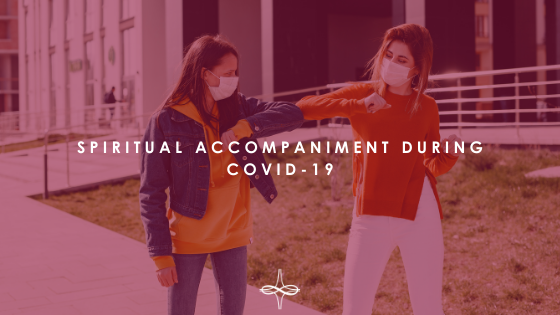
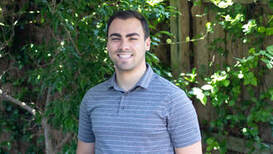
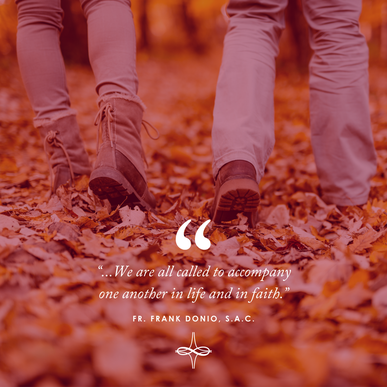
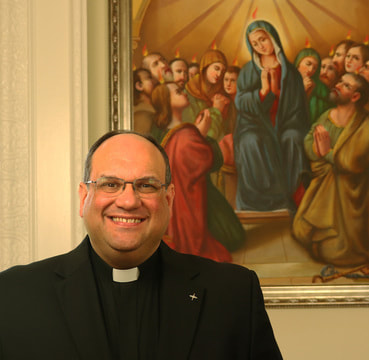


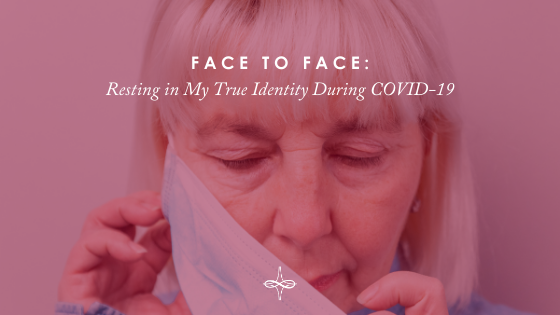

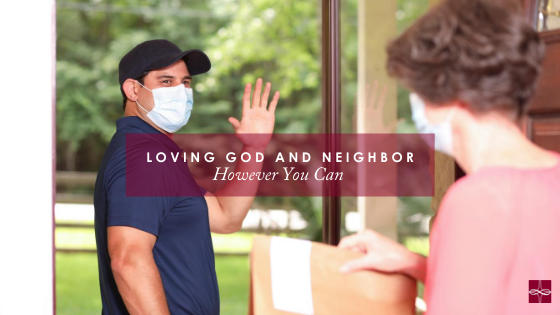

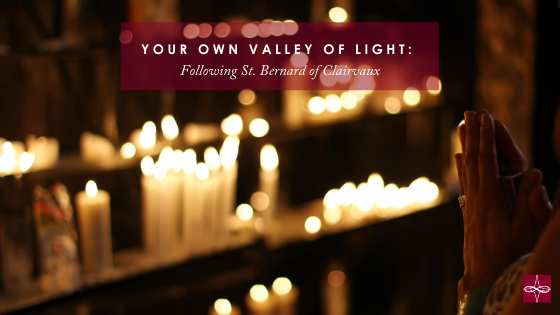

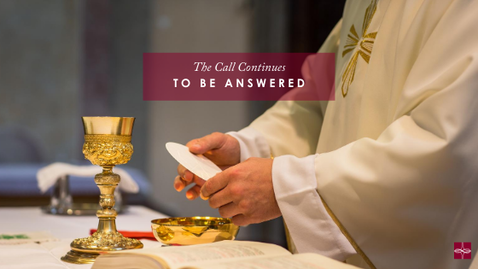

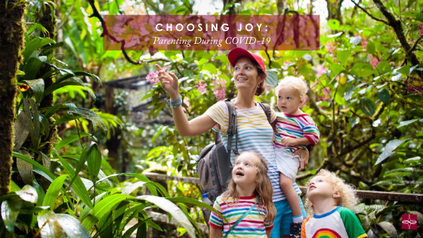





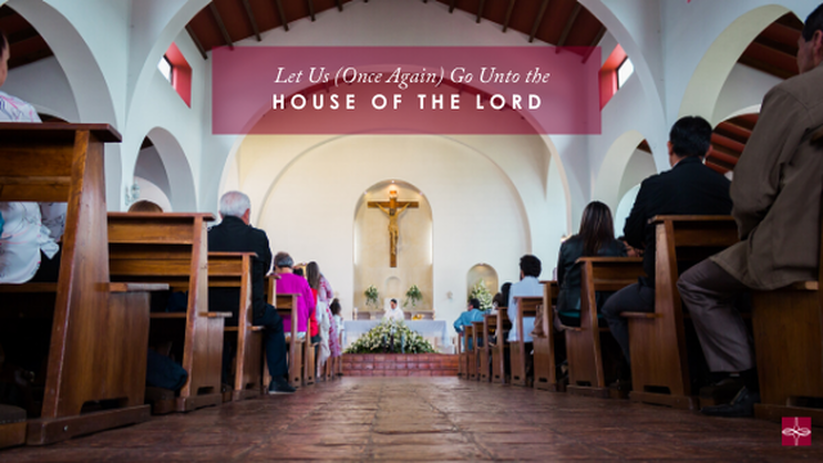



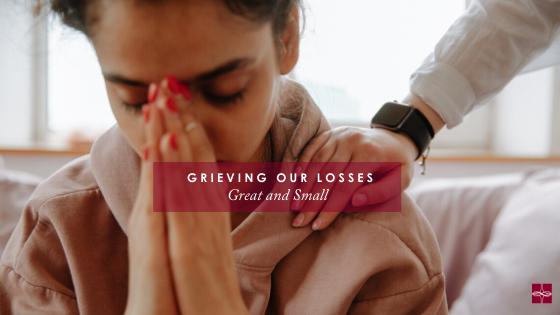
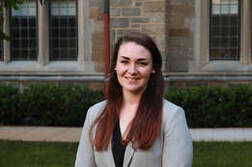
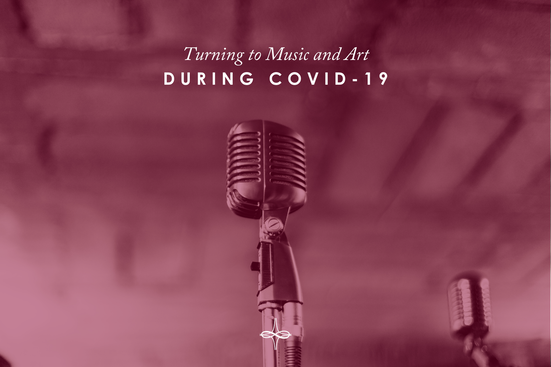

 RSS Feed
RSS Feed